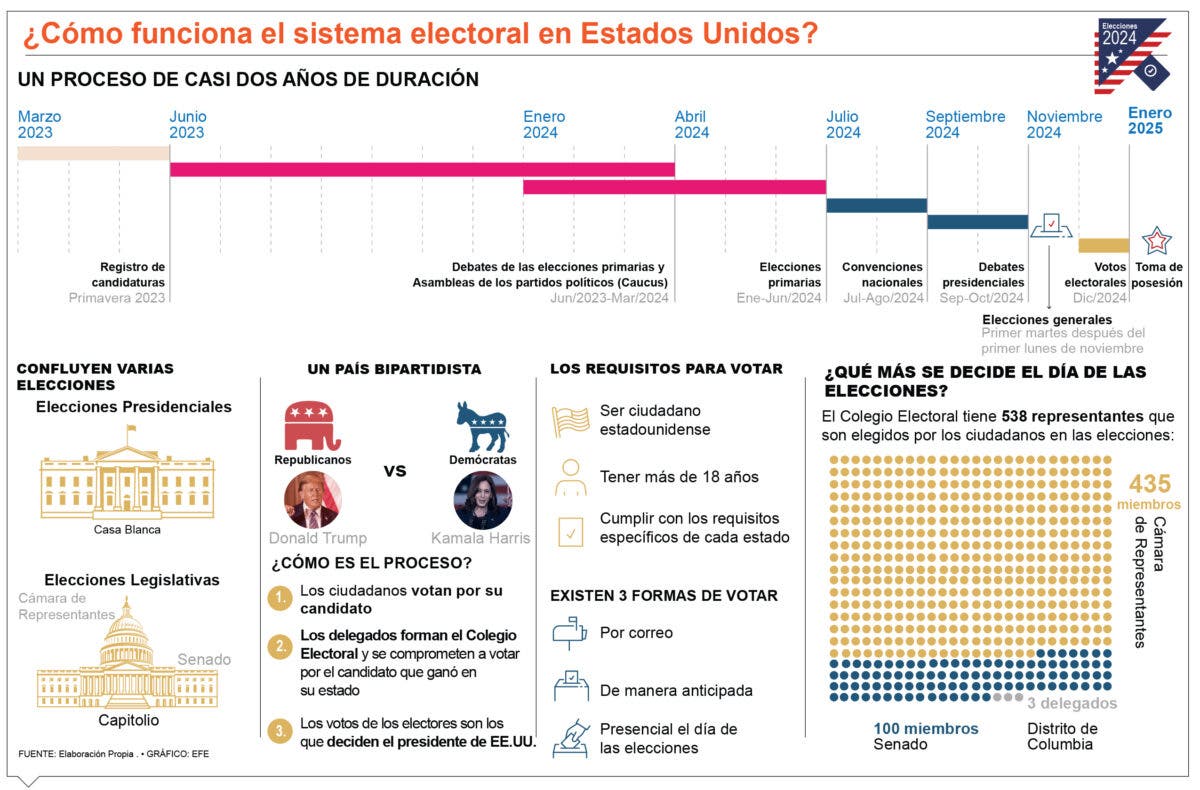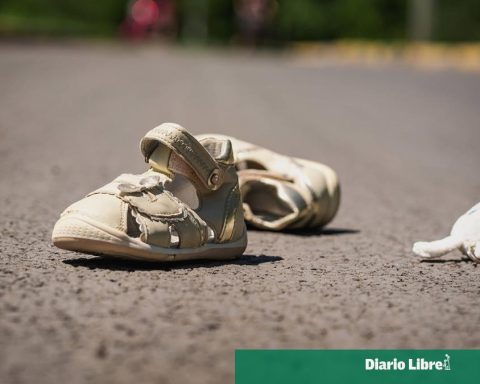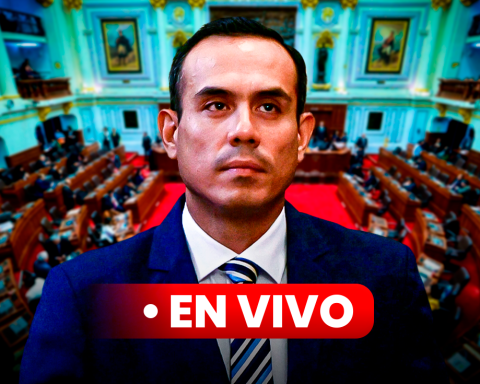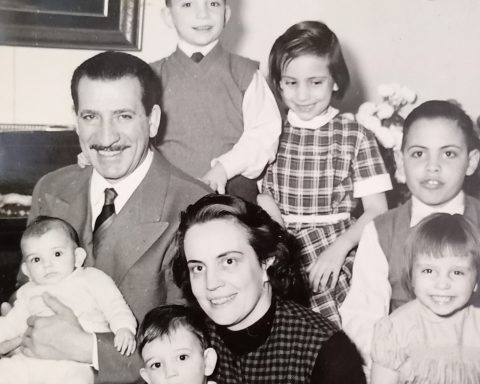Santo Domingo.-The electoral campaign in the United States, which pits former Republican President Donald Trump against current Democratic Vice President Kamala Harris, has captured attention around the world, and the Dominican Republic is no exception.
The interest aroused at the local level has been unusually high, driven by phenomena that are now global such as misinformation, disqualification in the political debate and migration as a topic of primary interest of the countries.
Donald Trump has earned the sympathy of the Dominican faction that maintains a critical stance in relation to uncontrolled Haitian migration, since the former president’s speech, although focused on migration in the United States, draws parallels for these groups.
The same has happened with religious and traditionalist groups that maintain a crusade against abortion or the predominance of what is called “gender ideology.”
As expected, Democrat Kamala Harris has earned the sympathy of the so-called liberal groups that promote the approval of issues such as the three causes, support for immigrants or that support the agenda of the groups known as LGBT.
Alejandro Abreu, a sociologist consulted by EL DÍA, explained that “without a doubt, the presidential elections on November 5 are more relevant for Dominicans than local congressional and municipal elections, because they feel closer and more linked to what can happen in the next few years.”
He understands that the key issues include the impact on remittances, immigration policy, the economy and the treatment of security issues in the region.
This campaign, which very frequently moves between diatribe and vanity, reveals the vision of the two main candidates on issues such as immigration policies and the issues of economy and employment are particularly relevant, since many Dominicans work in sectors such as construction, commerce and hospitality, which can be affected by the decisions of whoever occupies the White House.
A complex system
The American electoral system is complex and unique. Unlike other countries where the president is elected directly by popular vote, the United States uses the Electoral College system, where each state has a certain number of electors based on its population.
Candidates must win at least 270 of the 538 electoral votes to become president.
Each state in the union has a specific number of electors, and in most cases, the candidate who wins a state’s popular vote obtains all of that state’s electoral votes, in a system known as “winner-takes.” there.”
This structure leads to certain states, called “swing states,” having greater relevance in the election, since their voting tendency is not fixed between Democrats or Republicans.
The system has a direct impact on the way electoral campaigns are carried out, with candidates focusing their efforts on key states and seeking to mobilize their support bases as much as possible.
This model makes the voices of minorities, including Hispanic voters, play a crucial role in states where their numbers are significant.
The Hispanic vote
Hispanics constitute the largest minority in the United States and represent 13.6% of the electorate, a group that is growing rapidly and whose weight in elections increases with each electoral cycle.
Within the Hispanic population, Dominicans occupy an important role, with nearly 1.2 million people identifying as Dominican or of Dominican descent, according to the United States Census Bureau.
The Hispanic vote is not monolithic and shows marked divisions between states and generations. However, issues such as the economy, access to health, education and immigration policies are issues of great relevance to the community.
In particular, among Dominicans, the immigration issue and the candidates’ positions regarding the regularization of migrants and the granting of permanent residences generate high interest.
Election date
– Tomorrow
It should be noted that unlike many Latin American countries where elections are always on a Sunday, those in the United States have been held since 1845 on the first Tuesday, after the first Monday in November.
Politicized diaspora
Habit. The Dominican diaspora in the United States has a political tradition that, for the most part, leans towards the Democratic Party, especially New York, where a large concentration of Dominicans reside.
In the US Congress, representatives such as Adriano Espaillat and Ritchie Torres, both of Dominican descent, are members of the Democratic Party and have been visible figures in the defense of the rights of migrants and on issues of inclusion and social justice.
However, it has been observed that new Dominican migrants arriving in other states, especially those that have experienced a favorable economic situation under Republican policies, have shown some openness towards the Republican Party.
In this sense, divisions within the diaspora reflect the changing nature of political alliances among Dominicans in the United States.
For those who reside in communities affected by restrictive immigration policies, the Republican position may seem less attractive when choosing.

















